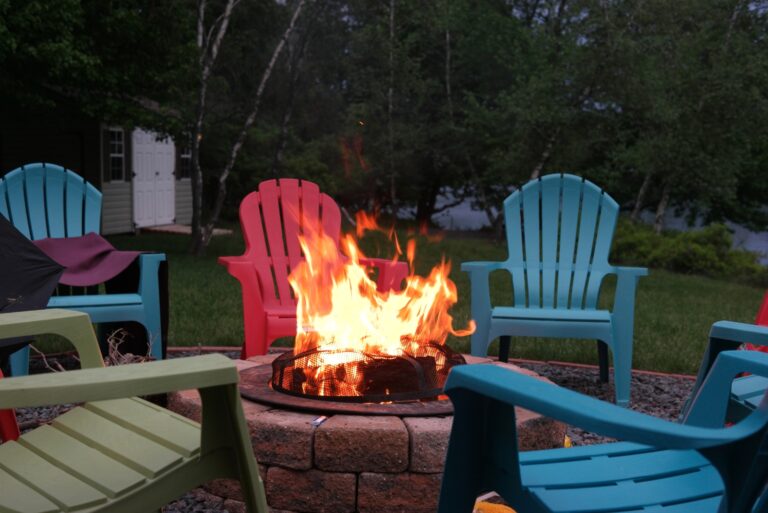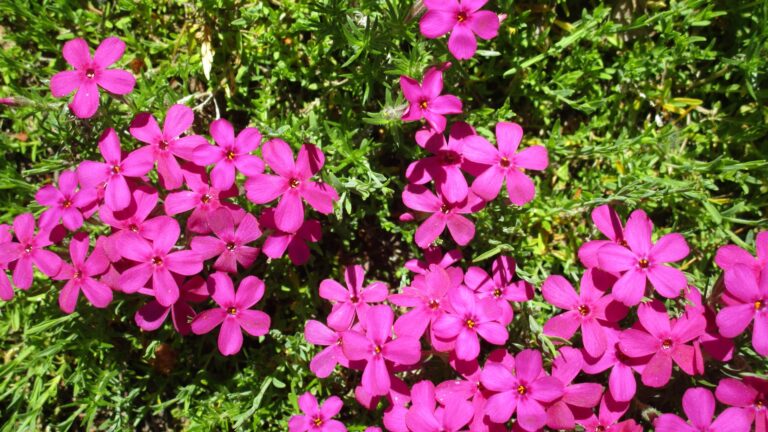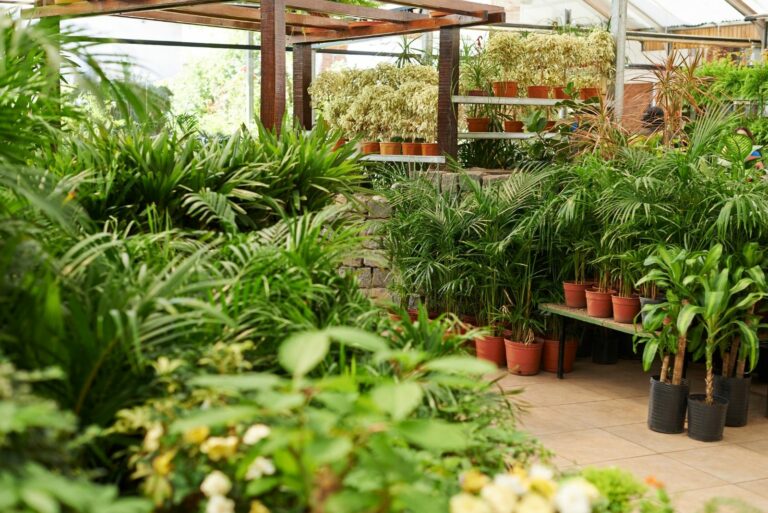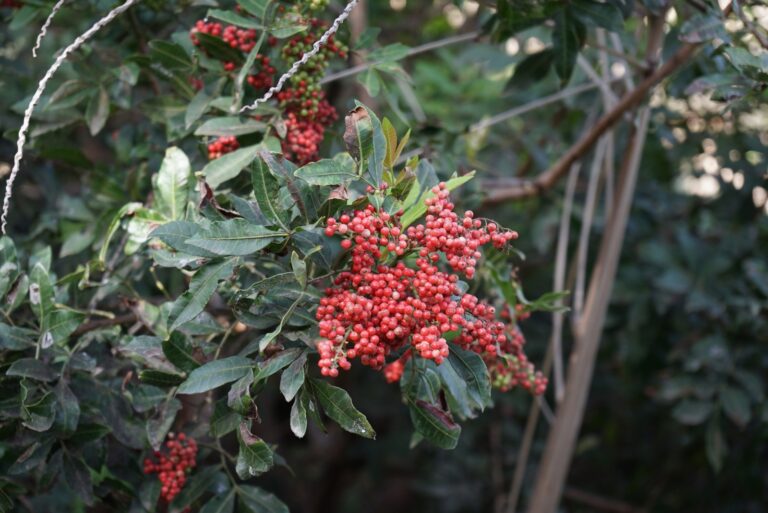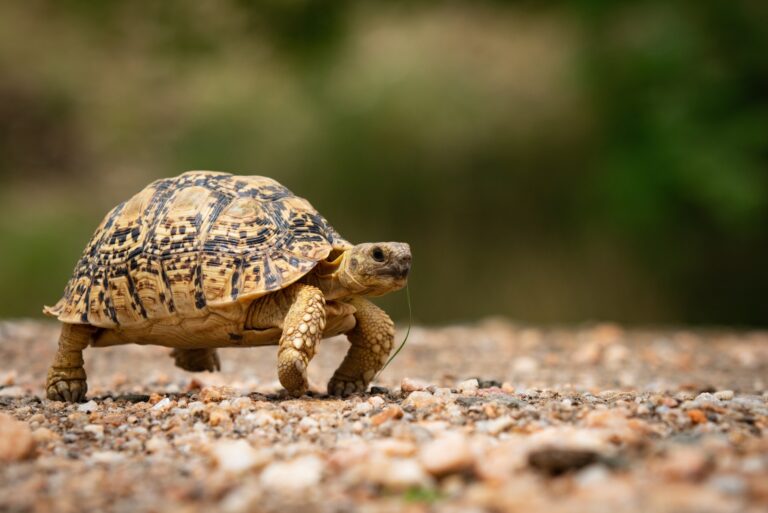What Not To Store On Your Porch In Georgia (And What Works Better)
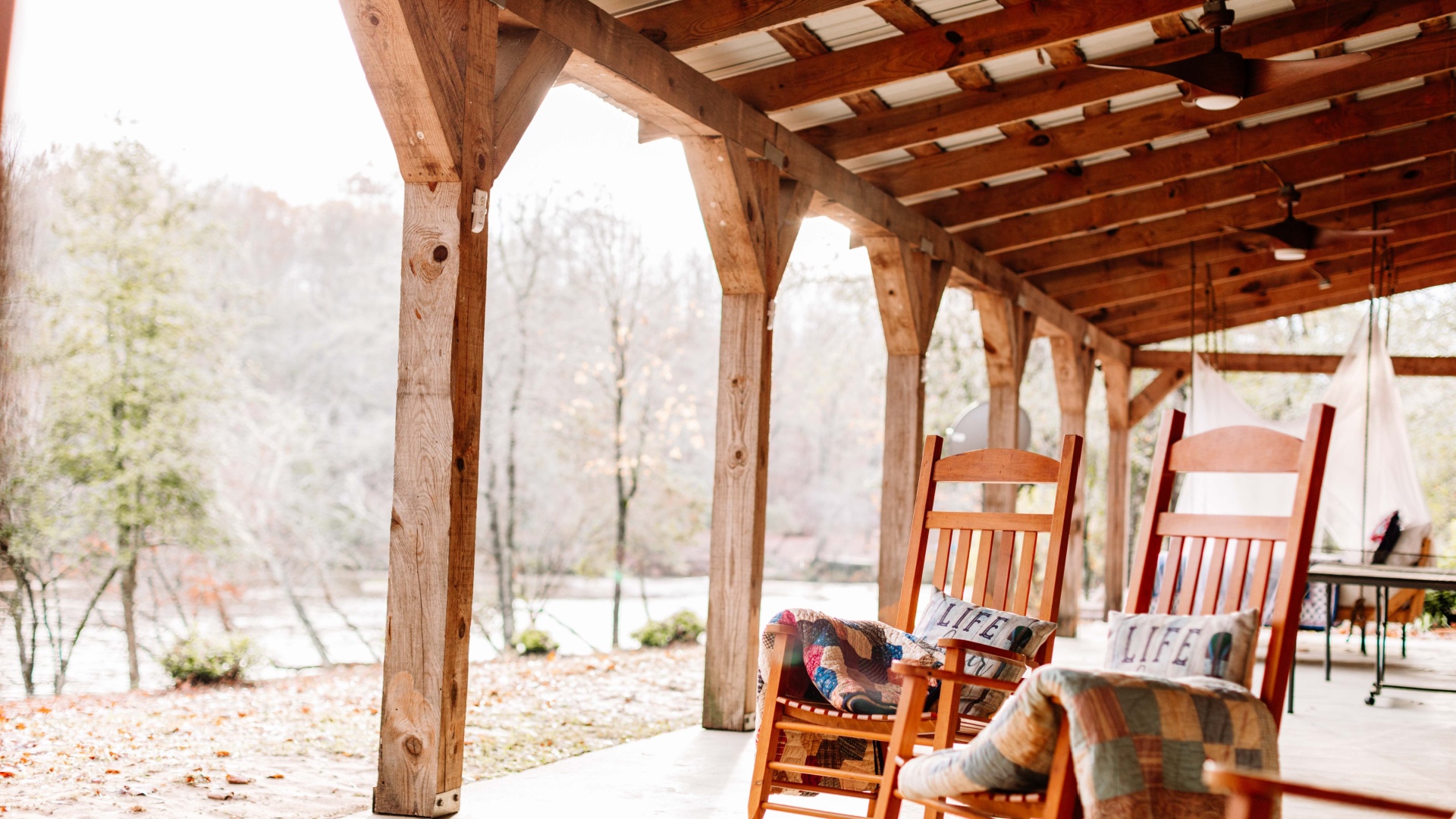
A porch can be a welcome mat or a messy catch-all—it all comes down to what you stash there. In Georgia, certain items invite pests, clutter, and chaos faster than sweet tea disappears on a hot day. From soggy cushions to rusted tools, some things just don’t belong.
Swap the space-hogs and quick-fail storage for smart, good-looking solutions that keep your porch tidy, functional, and full of Southern charm.
1. Cardboard Boxes Invite Disaster
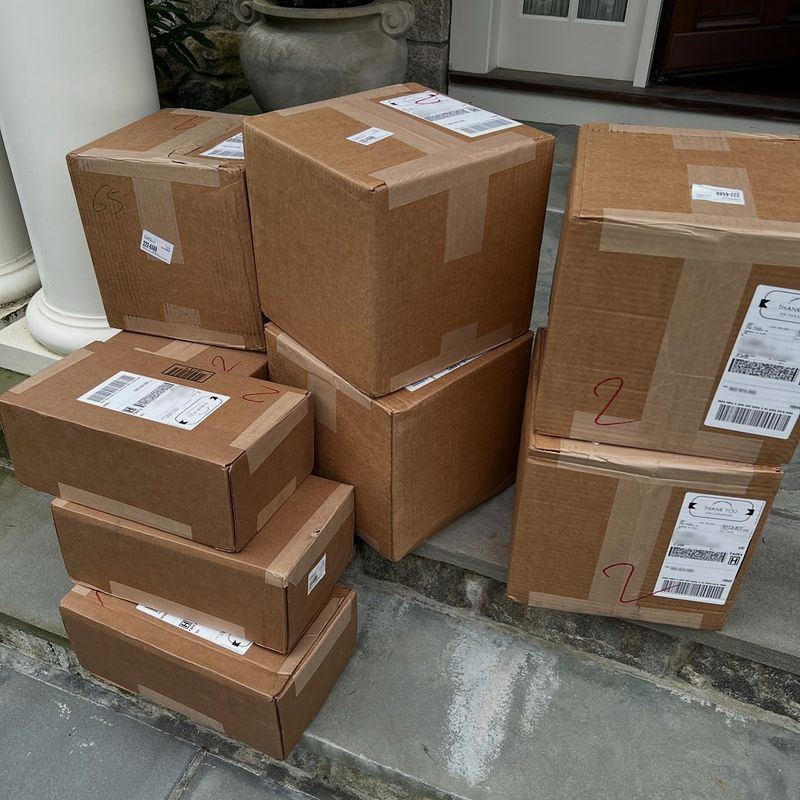
Cardboard quickly absorbs moisture in Georgia’s humid climate, turning sturdy boxes into saggy messes within days. Rainwater seeps through even covered porches, creating perfect breeding grounds for mold and attracting cockroaches.
Instead, invest in weatherproof plastic storage bins with secure lids. These containers resist moisture, block pests, and stack neatly to maximize space. Clear bins make it easy to identify contents without opening each container.
2. Upholstered Furniture Becomes a Moldy Mess
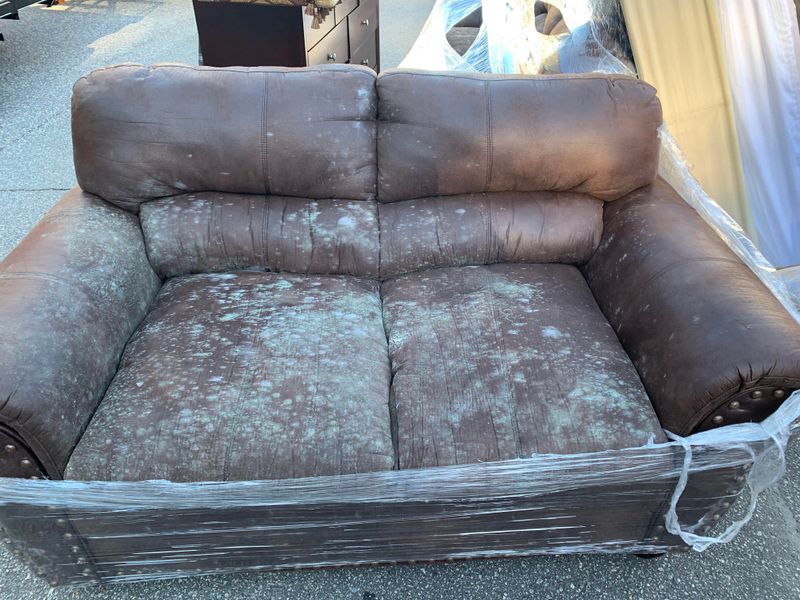
Fabric couches and chairs absorb Georgia’s heavy humidity like sponges. Even under a covered porch, upholstered furniture collects moisture, developing musty odors and unsightly mildew spots that are nearly impossible to remove.
Opt for outdoor-specific furniture made from synthetic wicker, treated wood, or powder-coated metal. These materials withstand humidity while providing comfortable seating. Add weather-resistant cushions you can bring inside during rainstorms.
3. Electronics Quickly Deteriorate
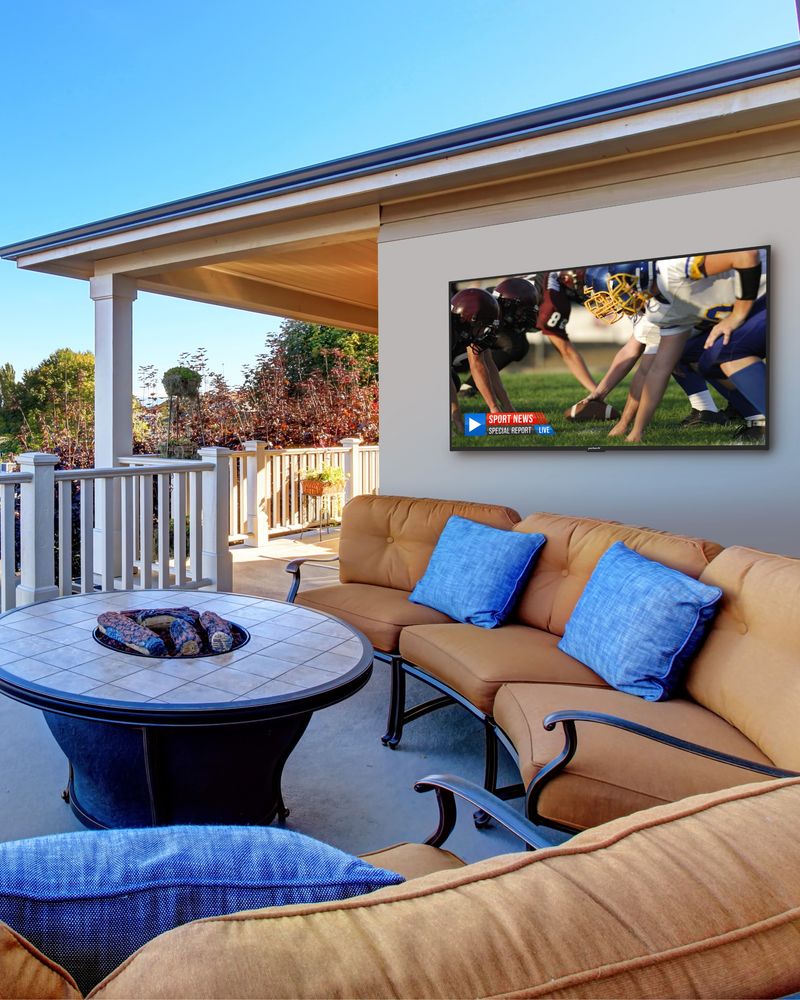
Speakers, TVs, and gaming consoles weren’t built for Georgia’s temperature swings. Humidity causes internal corrosion while summer heat warps plastic components. Morning dew alone can short-circuit electronic devices left outdoors.
For outdoor entertainment, look for specially designed weather-resistant speakers and screens with proper outdoor ratings. Always install these under solid cover with weatherproof covers for additional protection when not in use.
4. Wooden Instruments Warp Beyond Repair
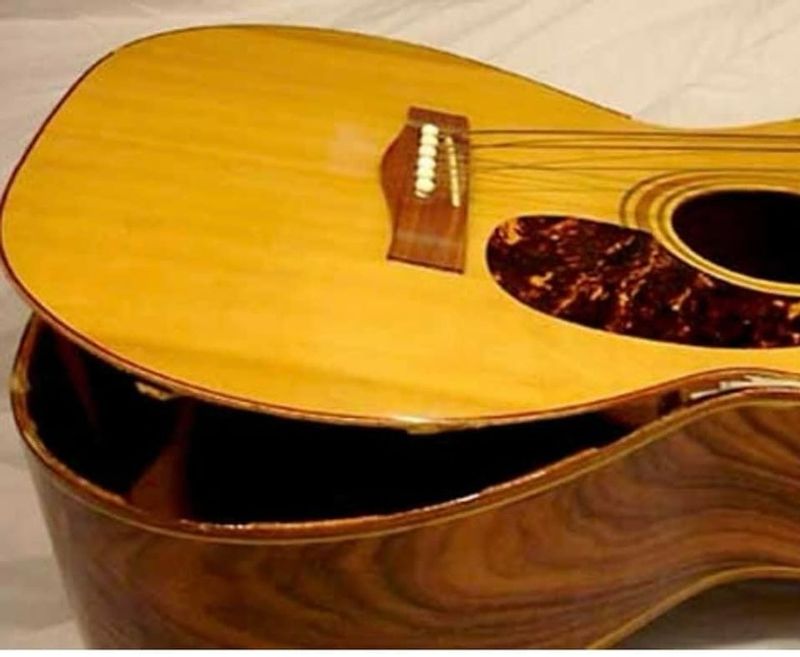
Guitars, violins, and other wooden instruments react dramatically to Georgia’s humidity fluctuations. Wood expands and contracts with moisture changes, causing permanent warping, cracked finishes, and loosened joints.
Keep instruments inside your climate-controlled home. If you enjoy porch playing, bring instruments out only during use, then return them to proper indoor storage. Consider inexpensive “porch instruments” if you must have music outdoors.
5. Paper Documents Become Unreadable
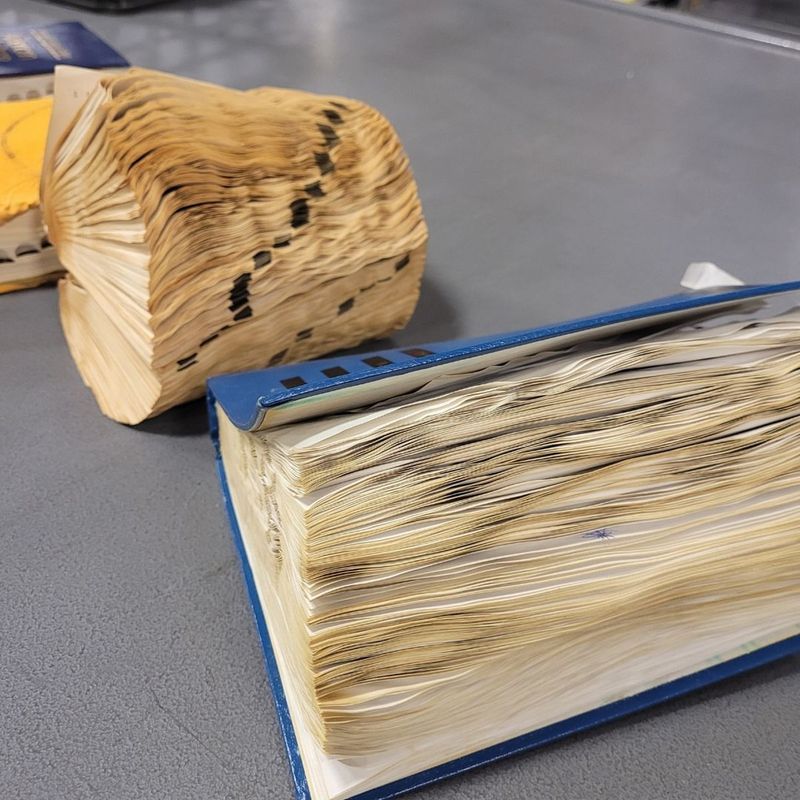
Important papers, books, and photo albums deteriorate rapidly in Georgia’s humid environment. Pages stick together, ink runs, and mold spots develop even inside plastic bags or containers that aren’t airtight.
Store all paper documents inside your home in acid-free boxes. For porch organization, use waterproof document holders for temporary storage only. Consider digitizing important papers and photos as backup protection against environmental damage.
6. Pet Food Attracts Unwanted Wildlife
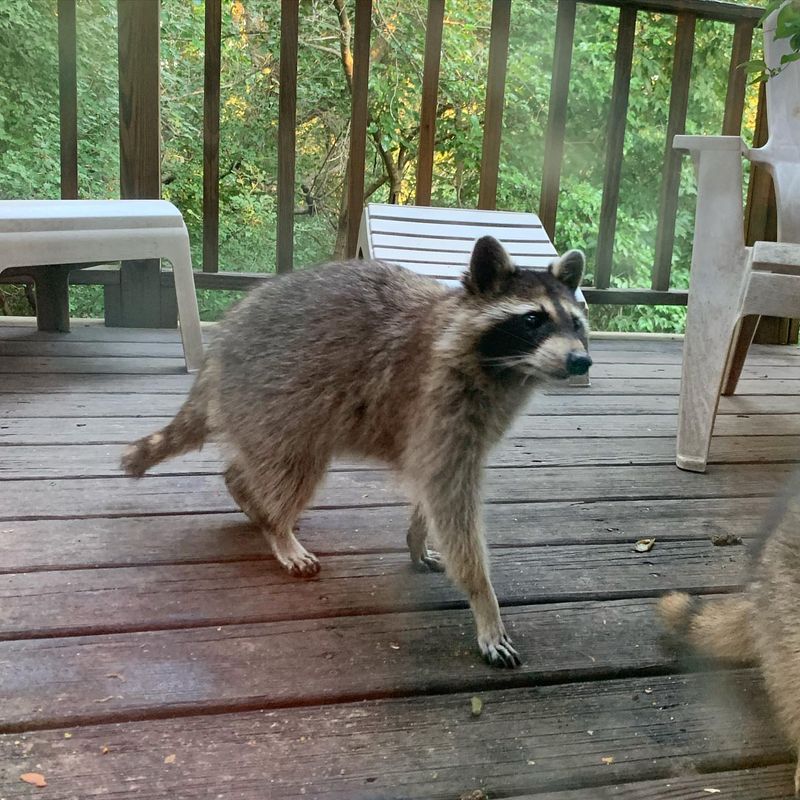
Bags of dog food or birdseed stored on porches send dinner invitations to raccoons, rats, and roaches. Even sealed containers release enough scent to attract determined wildlife, leading to chewed furniture and structural damage.
Keep pet supplies in airtight containers inside your garage or home. For bird enthusiasts, store seed in metal containers with tight-fitting lids. Never leave pet dishes with food outdoors overnight in Georgia—you’ll meet your local raccoon family very quickly!
7. Potting Soil Bags Harbor Snakes
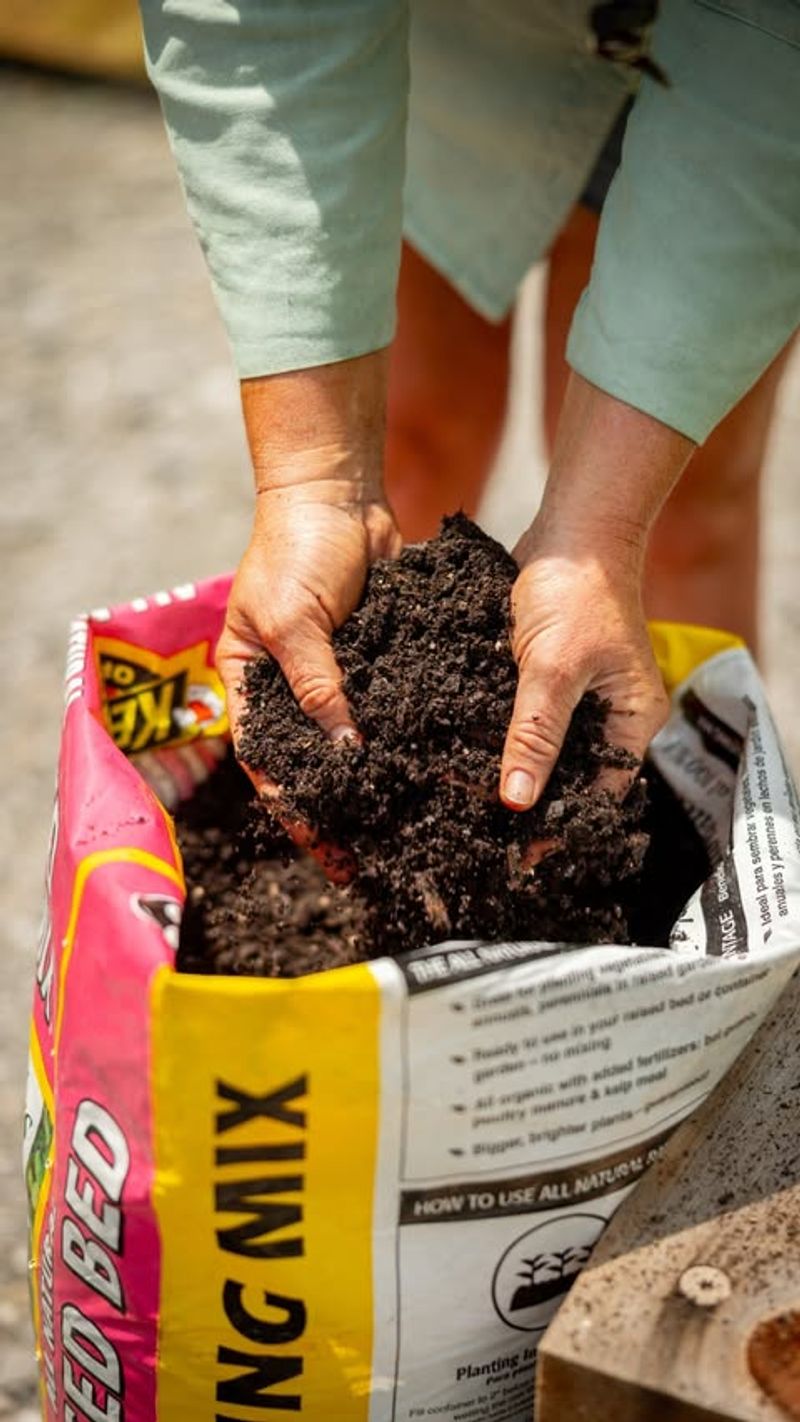
Open bags of garden soil or mulch create perfect hiding spots for Georgia’s abundant snake population. These cool, dark spaces attract both harmless and venomous species seeking shelter, especially during hot summer months.
Store garden supplies in heavy-duty plastic or metal containers with secure lids. Keep bags elevated on shelves rather than directly on the porch floor. For active gardening projects, transfer only the amount needed to smaller containers.
8. Wicker Baskets Deteriorate Quickly
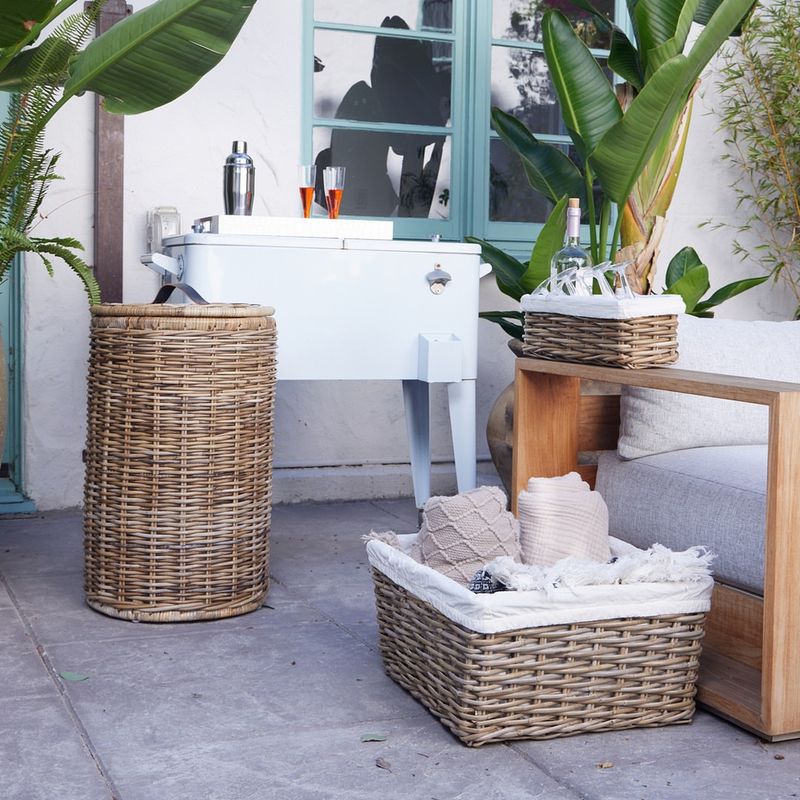
Decorative wicker baskets might look charming initially, but Georgia’s humidity causes rapid deterioration. Natural fibers absorb moisture, leading to mold growth, unpleasant odors, and structural weakening that renders them useless for storage.
Choose synthetic wicker or seagrass alternatives specifically designed for outdoor use. These materials mimic natural wicker’s appearance while resisting moisture damage. For authentic wicker lovers, use these pieces indoors only, where climate control extends their lifespan.
9. Candles Melt Into Disappointing Puddles
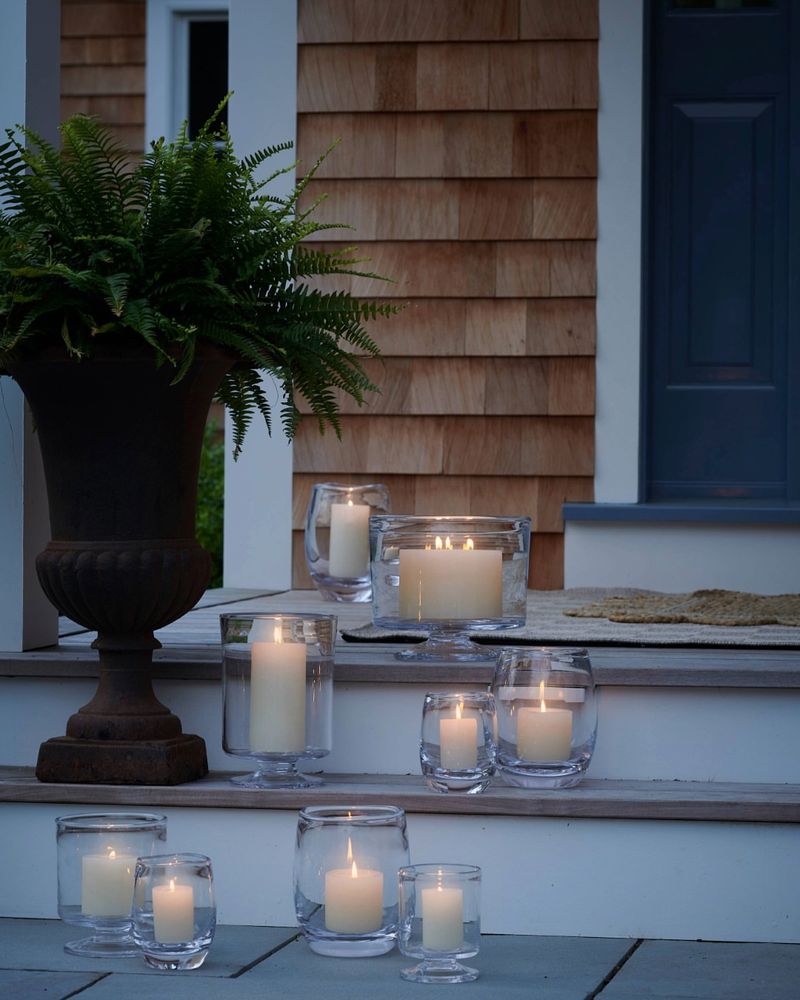
Summer temperatures in Georgia regularly exceed 90°F, turning decorative candles into shapeless blobs. Even in shade, pillar candles slump while container candles liquefy, creating messy spills and ruining porch surfaces.
Opt for LED flameless candles that provide ambiance without melting concerns. For authentic candle lovers, bring real candles outdoors only when in use, then store them inside. Solar-powered lanterns offer another heat-resistant lighting alternative for Georgia porches.
10. Holiday Decorations Fade and Crack
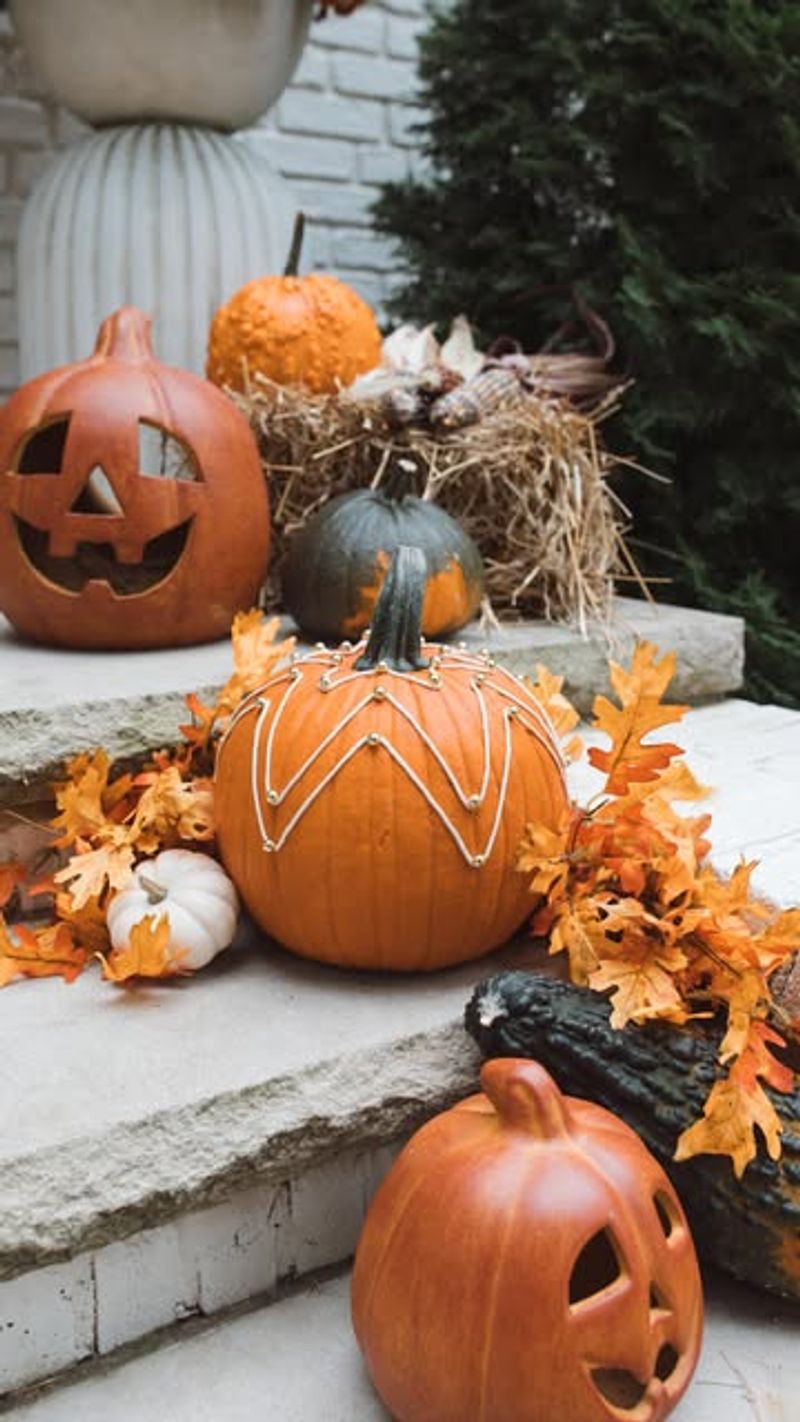
Plastic pumpkins, Christmas figurines, and other seasonal decorations deteriorate rapidly when stored on Georgia porches. UV rays fade colors while temperature fluctuations cause plastic to become brittle and crack.
Store holiday items in climate-controlled spaces like closets or attics. If space is limited, use UV-resistant storage containers placed in the shadiest porch areas. Consider rotating seasonal decorations directly from display to proper storage without porch “layovers.”
11. Paint Cans Become Unusable Hazards
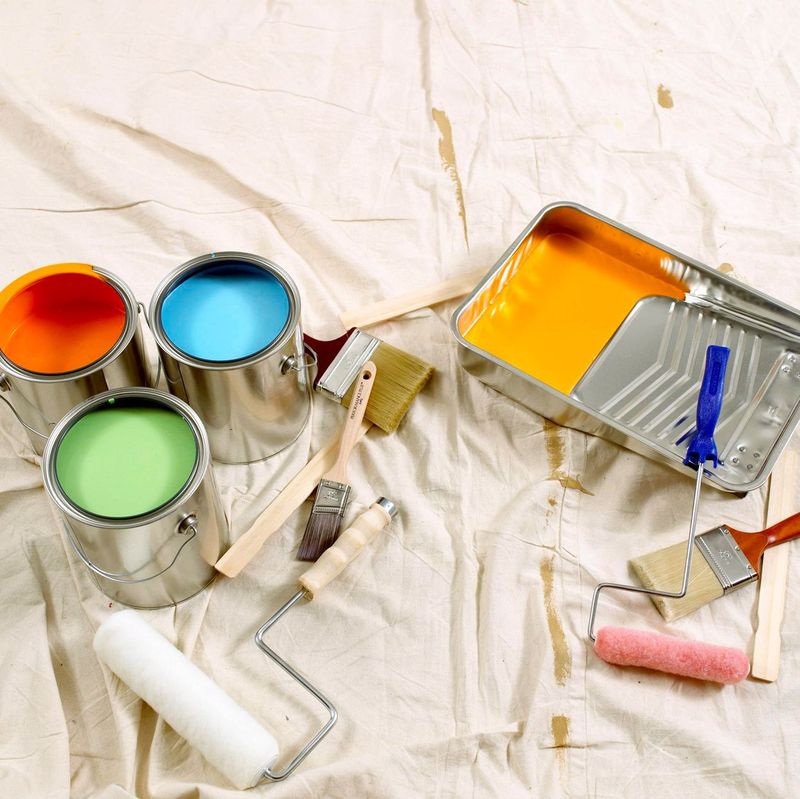
Leftover paint stored on porches quickly deteriorates in Georgia’s climate extremes. Summer heat causes pressurized cans to bulge or leak, while freezing winter nights damage latex formulations permanently.
Store paint in temperature-controlled spaces like interior closets. For porch projects, transfer only what you’ll use immediately to smaller containers. Consider donating excess paint to community recycling programs rather than storing it long-term.
12. Outdoor Cushions Without Protection
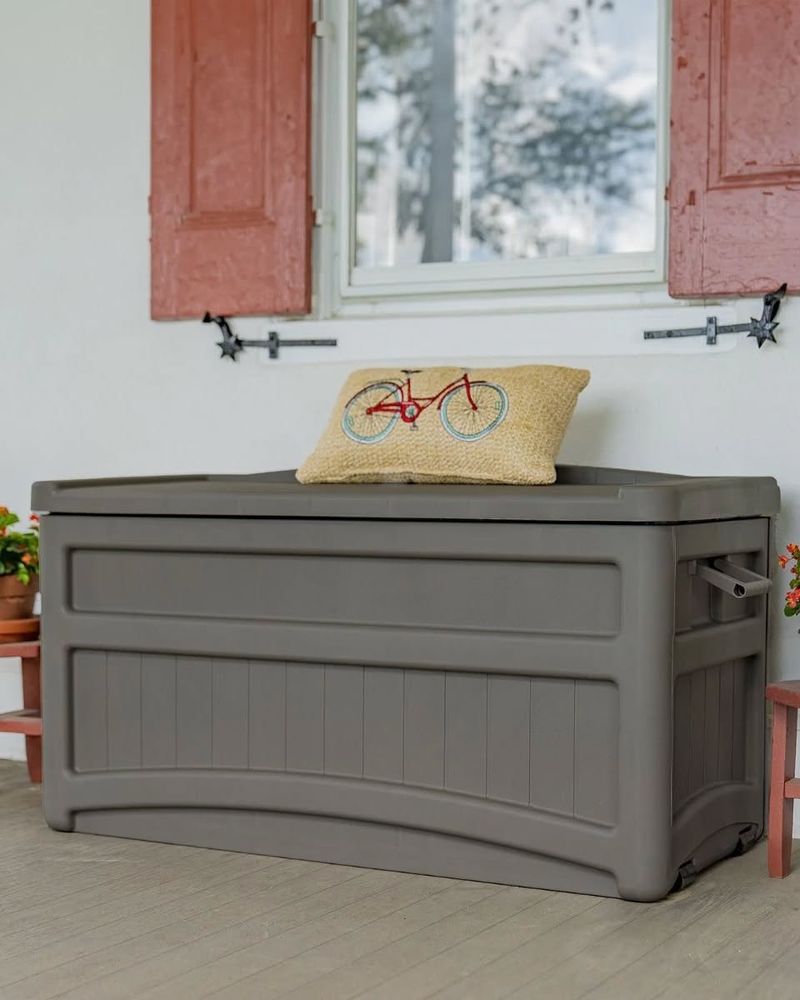
Standard indoor cushions weren’t designed for Georgia’s humid conditions. Even covered porches allow enough moisture to penetrate fabrics, leading to mildew growth and permanent staining.
Invest in cushions specifically labeled for outdoor use with quick-drying, mildew-resistant fabrics. Store these in weatherproof containers during extended rainy periods. For maximum longevity, bring cushions inside during hurricane season or when not regularly using your porch.
13. Firewood Attracts Destructive Termites
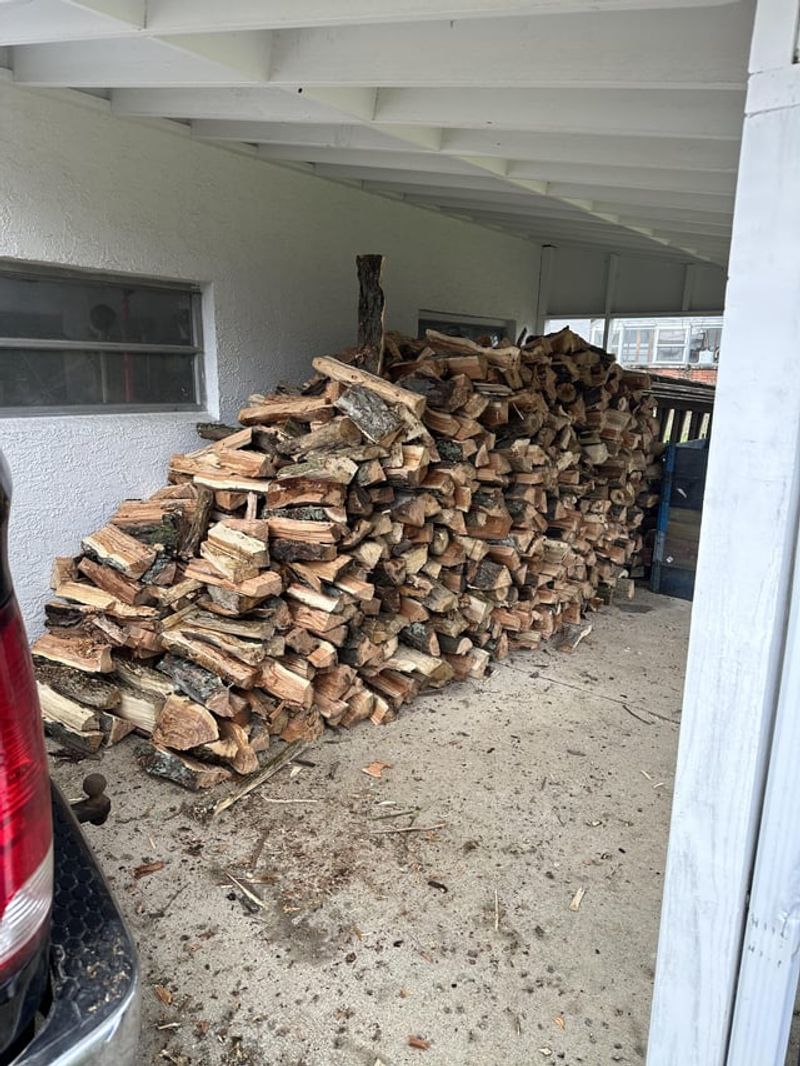
Stacking firewood directly on your porch creates a termite highway into your home. Georgia’s warm, humid climate makes wood piles particularly attractive to these destructive insects, which can cause thousands in structural damage.
Store firewood at least 20 feet from your house on elevated racks. Bring only what you’ll burn within 24 hours to your porch. For decorative purposes, consider ceramic log lookalikes that provide rustic charm without pest concerns.
14. Children’s Toys Become Breeding Grounds
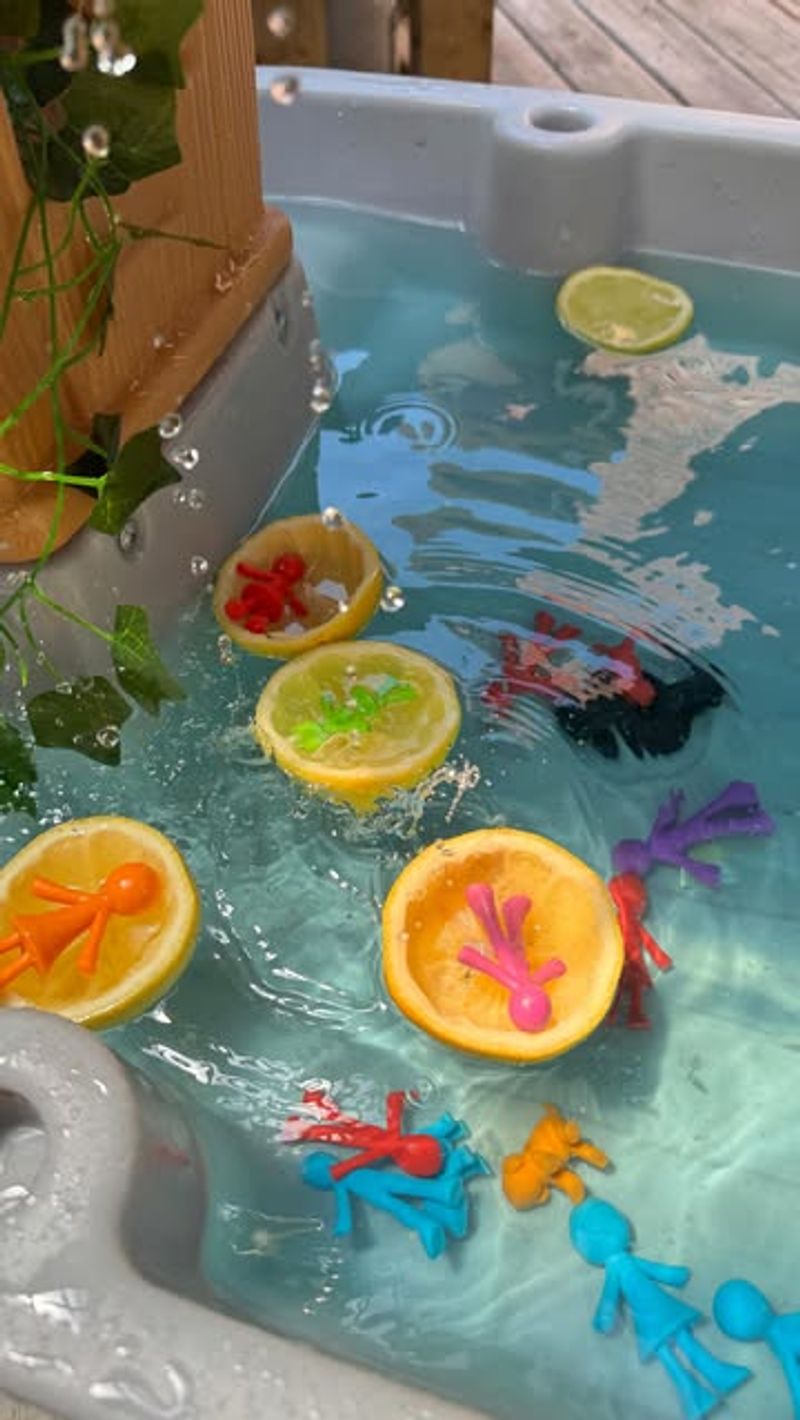
Plastic toys collect rainwater in every crevice, creating mosquito breeding spots throughout Georgia’s extended warm season. Stuffed animals absorb moisture, developing mold that can trigger allergies and respiratory issues.
Use weatherproof toy chests with drainage holes for outdoor playthings. Implement a regular cleaning schedule for toys left outside. For rainy seasons, move the collection to indoor storage or screen in your play area.
15. Unsealed Wood Furniture Rots Rapidly
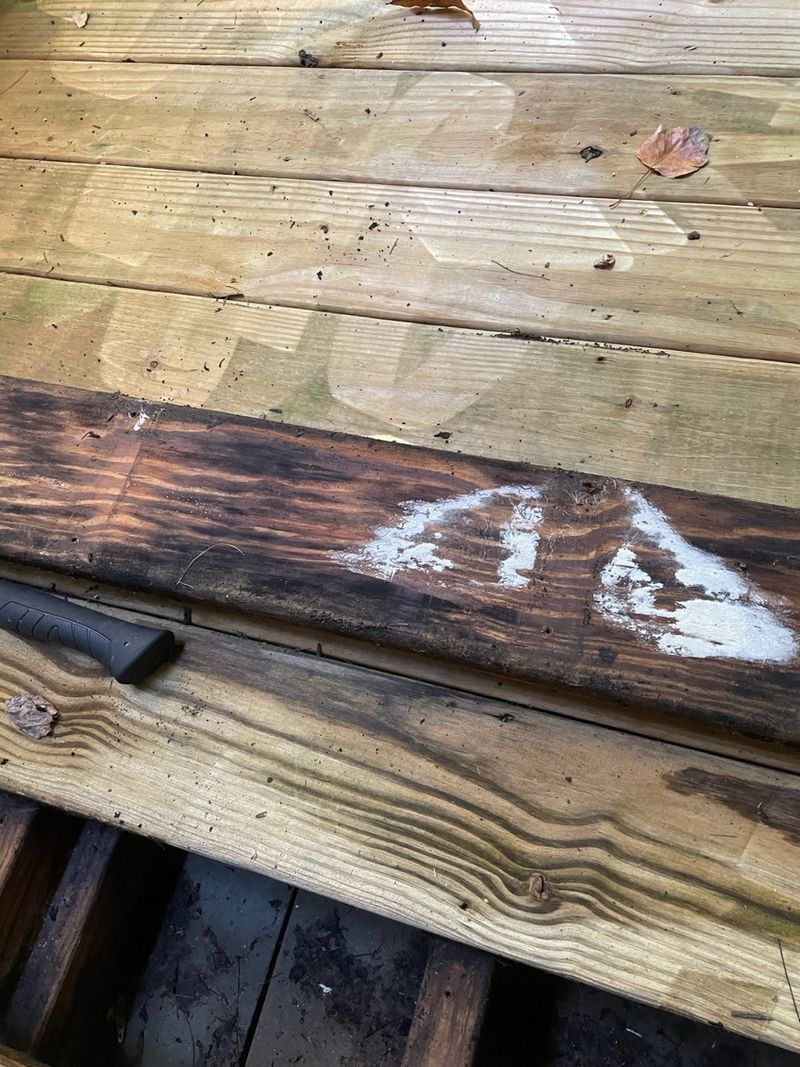
Untreated wooden tables and chairs quickly deteriorate in Georgia’s climate. Moisture penetrates raw wood, causing warping, splitting, and creating perfect conditions for wood-destroying fungi.
Choose furniture made from naturally rot-resistant woods like cedar or teak. Apply marine-grade sealants annually to protect wooden pieces. For budget options, composite materials mimic wood’s appearance while offering superior weather resistance.

